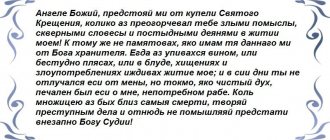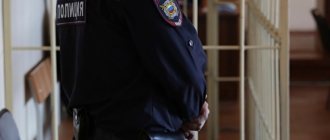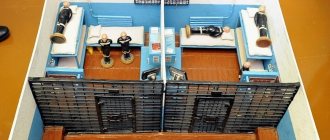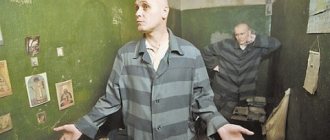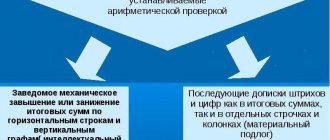Theft is the secret theft of someone else's property. And neither the apartment nor the country property are protected from them in any way. Country thefts are one of the most difficult crimes to solve, since there is usually an acute shortage of evidence and witness testimony - the main data for countering the crime.
However, dacha thefts can and should be fought! If you see that you have become a victim of a crime, do not give up. After all, it will largely depend on you whether the crime will be solved or not. In this article we will tell you what to do if you find signs of burglary and robbery in your dacha.
What crime is theft from a dacha?
Theft is a criminal offense, which is included in Article 158 of the Criminal Code of the Russian Federation. This article is extremely diverse, excellently shows all the methods of hidden theft and at the same time explains in detail under what circumstances the theft falls into one category or another.
In this case, dacha theft can cause a lot of controversy, since it affects several points of this article at once. However, in reality everything is simple. If only your property was robbed (without breaking into cellars, storage rooms or a house), then point one will be used - ordinary theft. If an attacker entered your barn, garage, cellar or other “technical” room, then point two of this article will apply - theft from storage areas and other non-residential buildings Well, if the thief cleaned out the house itself, then “Theft by entering a living space” will definitely be used
The best alarm system is bright and loud
Valuables and expensive garden equipment should not be left at the dacha for the winter, even if you have a very expensive and “smart” alarm system and even if it is connected to a private security remote control. Even if the private security company’s employees meet the time allotted by the regulations, the robbers will still have time to take something out. And if there is mud or snowdrifts on the street, thieves will have much more time.
The new-fangled alarm doesn't just turn on the siren. When doors are opened, glass is broken, or a window frame is opened, traps explode and release tear gas. But former repeat offender Vyacheslav Bogatov believes that this method cannot be called effective: “The thief opens the door and hears a bang, gas is coming out. He takes a step back and that's it. It’s not possible to fill the entire street with gas.”
.
What to do in the first minutes?
So, you just entered your summer cottage and realized that you were robbed. Usually, signs of theft in a country house are much easier to notice - attackers do not stand on ceremony with country houses and rarely enter secretly. So most likely, when robbing a summer cottage, you will either immediately notice the loss (cases are not uncommon when attackers take away decorative elements and even greenhouses), or you will discover a break-in literally in a minute (as practice shows, locks in most cases are simply broken out). So what to do?
- Tell the police immediately. They are the ones who must investigate whether a crime has been committed. If you have your own policeman in your dacha cooperative, then immediately contact him - he will be fully authorized to carry out all the same actions as the “city” employee;
- Try to visually determine what property was stolen. First of all, check the places where jewelry and cash are stored. At the same time, try not to conduct too thorough a check - you will only confuse the traces of the crime;
- Try not to leave a legacy. Literally. When dacha plots are robbed, most traces of the crime remain, both in the building itself and on the street. So your task is simple - try to preserve the crime scene in the form in which you found it;
- Take photos. Any recorded details of the crime will be useful to you, so a few pictures definitely won’t hurt;
- Contact your neighbors and the head of the dacha cooperative. Try to collect any witness statements and find out if there have been any other cases of theft recently. If possible, obtain video recordings from the cooperative manager and neighbors with surveillance cameras.
Beware of the thief!
The Constitution is being violated - Article 22, which states that everyone has the right to freedom and personal integrity.
In our country, arrest, detention and detention are possible only by court decision.
Bathing and force-feeding thieves are nothing compared to other methods of protection.
Thus, the court sentenced a 60-year-old Cherepovets resident to six years in prison, who fired a gun at an 18-year-old thief who tried to enter his summer cottage. As the investigation established, the pensioner wanted to kill the thief, but this did not work out: a young man with a serious wound (the shot was made from a shotgun with buckshot) was able to get to the road, where the driver of a random car picked him up and took him to the hospital.
The victim had one lung removed and was granted disability. When examining the thief's personal belongings, the police found a set of master keys and other things that clearly indicated why he went to the dachas.
What to do after the police arrive?
So, a police officer has arrived to answer your call. He will need some time to examine the crime scene, after which you can begin some active actions. So what do you need to do after the police officer arrives?
- Describe what you have already seen. That is, tell us when and how you discovered that the theft had occurred, and also tell us about all the details that seemed suspicious to you. Remember that in cases of dacha thefts there are very few clues, and therefore any detail will be important;
- Finish the crime scene and check what else might have been stolen from you. Also, do not forget to inspect the dacha plot itself, outbuildings, sheds, bathhouses, etc. As a rule, during dacha thefts, robbers also do not ignore such seemingly unprofitable places;
- Work with the police officer to create an inventory of all stolen property. Take this step especially carefully, because if you forget about something, then it will be difficult to prove that the item was actually stolen from you. And if you report the theft of something you never had, you will get yourself into a lot of trouble;
- Call witnesses to testify, and also provide the employee with all the data collected in advance;
- Check the protocols drawn up by the employee and confirm the information in them by signing.
UNSUCCESSFUL season. Thieves are preparing to rob dachas closed until spring
“And I don’t keep any valuables at the dacha.”
And wow, they got in and took everything out, right down to the nails!
The robbers behaved like owners. They knew perfectly well that no one would tell them off, that the owners were definitely not at home.
Perhaps they watched the site for several days before carrying out their dastardly deed. They operated in the house calmly and without haste. A kettle, TV, satellite dish, and construction supplies were stolen. The main thing is that the thieves not only took things out, but also looted: they broke dishes, tore down curtains, threw things on the floor, and stomped on beds.
“They didn’t give a damn to me, because I created everything at the dacha with my own hands,” says Alexey Timofeev.
— I contacted the police with a statement, compiled a list of stolen items, and was called to the law enforcement authorities several times to give evidence. But, of course, the thieves were not found, and it is not clear whether they were looking for them. I can only speculate that
What to do after the police officer leaves?
Basically, there's nothing more you can do. All that remains for you is to follow the progress of the criminal case and try to collect as much useful data as possible. Do not hesitate to call the department and clarify exactly how the case is progressing, as well as report new important findings.
The only thing we can advise you is to try to look for some property yourself. If something not very valuable (for example, a tool) was stolen from you, then searching on your own is pointless. But if something expensive has been stolen (for example, jewelry or a painting), then look in pawn shops and spontaneous retail outlets in your city. However, under no circumstances make a fuss if you accidentally stumble upon your item - it’s better to immediately report it to the police.
Cameras won't help
A thief climbs over a fence to get into a summer cottage. Then he approaches the porch, looks around and suddenly notices the CCTV cameras, pulls up his hood and runs away. Cameras used to be considered one of the most reliable means of protection, but now they do not help. Former repeat offender Vyacheslav Bogatov says that only inexperienced thieves are afraid of cameras, but they do not stop experienced criminals: one of the criminals illuminates the camera with a laser pointer, and the other turns it off.
Make a list of stolen property
While the police are on the way, carefully inspect your property. If you kept documents at the dacha, then it is better to start the inspection exactly from the place where they were located. When inspecting your home after a theft, try not to walk back and forth as much as possible and touch objects as little as possible. Sometimes thieves, due to inexperience or carelessness, leave sweat or other traces in the premises they break into. The same applies to the territory of your dacha. Traces of the criminal could remain on paths, lawns, snow or wet autumn soil. And if the thief also has his eye on your late harvest, then it’s quite possible that it’s still in the storage and in the beds. But if you follow in his footsteps, then law enforcement will simply have nothing to investigate about you. In the sense that you will trample everything.
Under no circumstances should you clean up the mess before the police arrive, or even wipe off the dust! By leaving everything in its place, you will help the investigation as much as possible to establish the details of the crime.
If your dacha is equipped with video cameras, do not attempt to inspect them yourself. If a thief wanted to disable surveillance equipment, he could leave his sweat and fat marks there too.
It is best to immediately sketch out a list of stolen property based on the results of a quick inspection, and study the crime in detail together with the task force that arrived at the scene and then draw up a final list of stolen property, having examined the territory of the dacha more carefully. When talking about the things that thieves took from your dacha, do not forget about small details: defects in equipment, furniture or clothing, or some other features by which your things will be easy to identify. If necessary, provide law enforcement with documents for the stolen property. It would be great luck to have previously taken photographs showing the missing items. This is both proof that they were here and confirmation of minor nuances (for example, the same technical defects).
Add to the list of stolen items only the property that you actually lost, without adding three more tape recorders, cigarette cases and the same number of suede jackets. Firstly, this is misleading the investigation, and secondly, the most accurate list of property often indicates where exactly to look for things from this list. Once the police report is drawn up, read it carefully before signing.
Gather additional information
If you are confident that your actions can help and not harm the investigation, conduct a parallel “amateur” investigation after the police have left. It is unlikely that a foreign thief visited your dacha - most likely, the criminal lives not very far from these parts. Visit nearby thrift stores (and if expensive clothes have been stolen, then second-hand stores) and markets that sell used items. It is possible that this is where the thief took your iron with an insulated cord or a microwave with a dent on the body. But when you see an original item for sale, do not try to sort things out with its seller (and don’t say anything to him at all) - it’s better to step aside and immediately call the police. A law enforcement officer arriving at the scene will solve your problem. By the way, this algorithm of actions must be followed even if you subsequently find your item in the possession of someone you know.
Talk to neighbors and management of the dacha cooperative some time after the police leave. Often a person does not immediately, but after some time, remember important details of what happened, even if they seem insignificant. These details must also be reported to law enforcement agencies.
If the thief is caught, the amount of his punishment will directly depend on the severity of the crime. So, if a criminal stole property located on the territory of the site, but did not enter the premises, then he will receive a minimal punishment. If you illegally enter a house or any other building on the territory of your dacha, including outbuildings and storage facilities, the punishment will be much more serious, as if the thief had accomplices. The amount of damage suffered by the owner of the dacha is also important. If you discover that the dacha was not only robbed, but also caused damage to the property located on its territory, do not forget to tell this for the record: for this crime, additional punishment is imposed under another article of the Criminal Code of the Russian Federation.
Having completed all the suggested actions, from now on, try to leave at the dacha during your absence only that property that you are not initially sorry to part with. Take everything else with you to the city temporarily or throw it away.
Source
I’ll install the glass myself, if the house burns down, the company will pay
A deductible is a condition of an insurance contract that provides for the release of the insurer from compensation for losses not exceeding a certain amount. The franchise reduces the cost of insurance and relieves the parties of administrative costs when settling minor losses. A deductible is a form of participation of the policyholder in covering damage, which increases his interest in preserving the insured property.
For example, when insuring auto hull insurance with Ingosstrakh, a deductible of $100 provides a discount from 4 to 18%, a deductible of $300 provides a discount from 10.5 to 42%, and a deductible of $1000 provides a discount from 25 to 70%. At AlfaStrakhovanie, when setting a franchise from 50 to 300 dollars in property insurance of citizens, they reduce the rate from 2 to 10%.
Russian insurance companies have long and widely used the franchise in mass types of insurance, that is, where the price of the policy sold is of paramount importance - in motor vehicle insurance, voluntary insurance of motor third party liability, property of citizens, insurance of those traveling abroad. In the last year, the franchise has been actively used in the insurance of country property.


